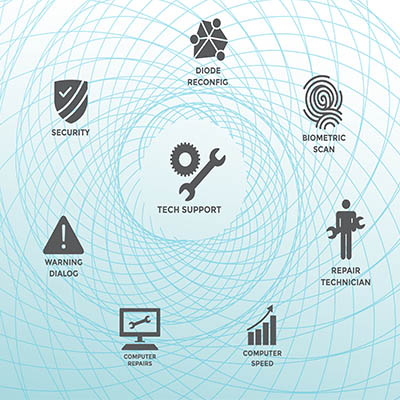There are challenges that go with running any business. Some of the most common come from unhappy employees. If you understand some of the most common complaints that today’s worker may make, you can proactively ward against them and create a happier and more productive workplace. Let’s take a look at five of the most common employee complaints in today’s workplace and what you can do about them.
Lack of Communication
One of the most frequent employee complaints is the lack of communication and transparency within the workplace. When employees feel uninformed about company updates, changes in policies, or even their own performance, it can lead to frustration and a sense of disengagement. Organizations should prioritize clear and transparent communication channels, such as regular team meetings, company-wide emails, and open-door policies, to ensure employees feel heard and informed.
Inadequate Recognition and Feedback
Employees thrive when they receive recognition and feedback for their hard work and contributions. Job satisfaction can suffer when they feel that their efforts go unnoticed or unappreciated. Organizations should establish formal systems for recognizing and rewarding employees’ achievements and providing constructive feedback regularly. This can include performance evaluations, employee recognition programs, and ongoing communication between managers and their teams.
Work-Life Imbalance
With the blurred lines between work and personal life, maintaining a healthy work-life balance has become increasingly challenging for many employees. Long working hours, excessive workload, and limited flexibility can contribute to burnout and dissatisfaction. Employers should strive to create a supportive work environment that promotes work-life balance through flexible schedules, remote work options, and encouraging employees to take regular breaks and vacations.
Insufficient Career Growth Opportunities
Employees often seek opportunities for professional development and career advancement. When they feel that their growth is stagnant, they may become disengaged and start looking for other job prospects. Organizations should invest in their employees’ development by offering training programs, mentorship opportunities, and clear career progression paths. Regular performance discussions and goal setting can also help employees feel valued and motivated to achieve their aspirations.
Poor Management and Leadership
Poor management practices can be a significant source of employee dissatisfaction. Common complaints include lack of support, micromanagement, favoritism, and unclear expectations. Effective leadership requires managers to provide guidance, empower their teams, and create a positive work culture. Organizations should invest in leadership training programs to equip managers with the necessary skills to motivate and engage their employees.
By understanding how to deal with these common complaints, you can do more to build a positive and productive workplace culture. Technology can be a major benefit to keep employees happy and productive. Give our IT consultants a call at 978-798-6805 to learn more about how we can help you build a better business.







